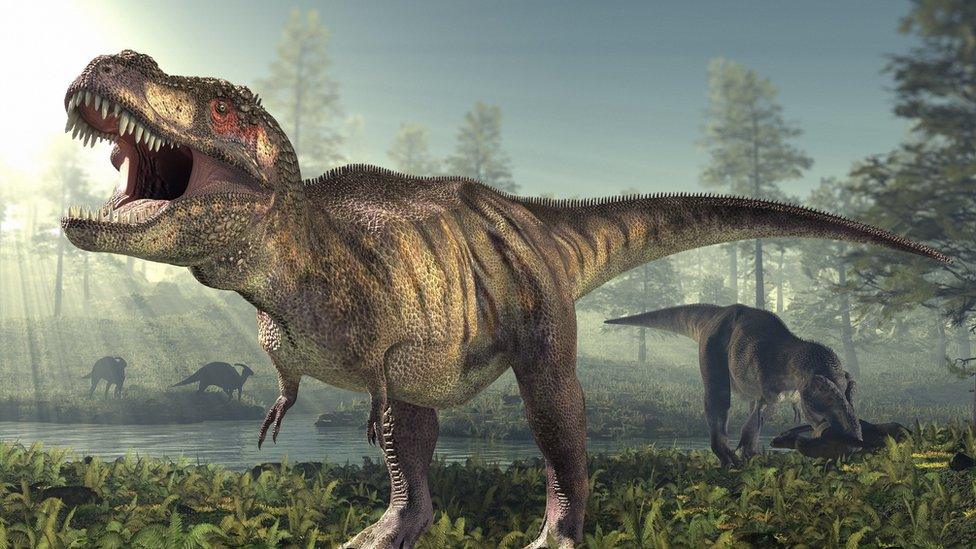Dinosaurs wagged their tails to help them run faster
- Published
- comments

Two-legged dinosaurs, like the T-Rex, used to wag their tails according to scientists
Scientists have discovered that two-legged dinosaurs, like the T-Rex, wagged their tails when they ran to stay balanced.
Researchers at Harvard University would have swished their tails from side to side to help keep them steady, just like humans swing their arms when running.
The team behind the study created a 3D simulation model of the animal to predict their movements.
Scientists used a 3D model simulation to test how the dinosaurs would have walked
In this study, researchers created a 3D computer simulation of a dinosaur called Coelophysis bauri, which lived 200 million years ago, using the model a South American bird that is similar to the dinosaur.
It was previously thought that the tails on two-legged dinos were used to counterbalance the weight of their heads.
But scientists found that by playing with the simulation they could test different theories on which body parts did what when the dinosaur moved.
Dr Peter Bishop, a research fellow at Harvard University in the US said, he was surprised by the results. But after trying different simulations from heavier tails, lighter tails and no tail at all, he said they concluded that the wagging of the tail was to help their walking.
Rather than just being a static counterbalance, simulations indicate that the tail played a crucial dynamic role... analogous (comparable) to the swinging arms of humans.
When they took the tail out of the virtual dinosaur, they found the the muscles of the creatures had to work 18% harder to maintain a consistent running speed.
As well as these findings giving new insight into animals movement in the past, Dr Peter Bishop, who led the research, hopes that it will lead to dinosaurs being more accurately represented in films and on television.
If you can't see the quiz at this top of this page, click here.
- Published16 October 2020
- Published22 September 2021
- Published23 September 2021
